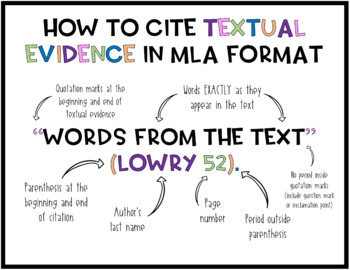

A conclusion that clearly states the main point that you have shown with your analysis.A main body, divided into paragraphs, that builds an argument using evidence from the text.An introduction that tells the reader what your essay will focus on.As you write, follow the standard structure of an academic essay: Instead, it is a type of argumentative essay where you need to analyze elements such as the language, perspective, and structure of the text, and explain how the author uses literary devices to create effects and convey ideas.īefore beginning a literary analysis essay, it’s essential to carefully read the text and c ome up with a thesis statement to keep your essay focused. Literary analysis means closely studying a text, interpreting its meanings, and exploring why the author made certain choices. It can be applied to novels, short stories, plays, poems, or any other form of literary writing.Ī literary analysis essay is not a rhetorical analysis, nor is it just a summary of the plot or a book review.


Textual evidence for free#
Try for free How to Write a Literary Analysis Essay | A Step-by-Step Guide I purchased these books at the tail end of last year and have not regretted it! These books are fabulous and can really help guide teachers in implementing anchor chart visuals for students that encompass every reading standard.Eliminate grammar errors and improve your writing with our free AI-powered grammar checker. When planning lessons to get my students to think more concretely about their reading, I often turn to K-2 Chart Sense: Common Sense Charts to Teach K-2 Informational Text and Literature and Chart Sense: Common Sense Charts to Teach 3-8 Informational Text and Literature. U nder the proverbial umbrella of text-dependent evidence falls questions that can 1.) get to the general understanding or gist of the text 2.) be literal, but must also involve evaluation, synthesis and analysis and 3.) focus on particular vocabulary words, sentences, paragraphs, events and themes. When discussing texts with my students, I pre-plan the direction I'd like to take them. They need to carefully read and answer questions only referring explicitly to the text. Students need to stay within the four corners of the text. Making personal connections to the text is still important, however, text-to-self connections are no longer a focus when responding to reading. Students are not able to answer questions purely based off of their prior knowledge or personal experience. Getting them to support an analysis of their reading with textual evidence takes much EXPLICIT guidance before they are able to be successful on an independent level. The majority of struggling readers and writers in my RtI groups often respond to their reading with brief, fragmented statements without text evidence supporting their thoughts. That may be very difficult for students to do. As we all know, the Common Core State Standards declare students should be able to * read closely to determine what the text says explicitly and to make logical inferences from it* as well as *cite specific textual evidence when writing or speaking to support conclusions drawn from the text*.


 0 kommentar(er)
0 kommentar(er)
